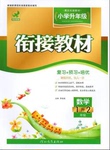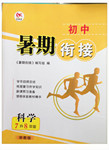题目内容
I climbed the stairs slowly, carrying a big suitcase, my father following with two more. By the time I got to the third floor, I was ___1___ and at the same time feeling lonely. Worse still, Dad ___2___ a step and fell, sending my new suitcases ___3___down the stairs. “Damn!” he screamed, his face turning red. I knew ___4___was ahead. Whenever Dad’s face turns red, __5___!
How could I ever ___6___ him to finish unloading the car ___7___ screaming at me and making a scene in front of the other girls, girls I would have to spend the ___8___of the year with? Doors were opening and faces peering out(探出), as Dad walked ___9___ close behind. I felt it in my bones that my college life was getting off to a(n) ___10___start.
“___11___the room quickly,”I thought. “Get him into a chair and calmed down.” But ___12___, would there be a chair in Room316? Or would it be a(n) ___13___ room?
___14___I turned the key in the lock and ___15___ the door open, with Dad ___16___ complaining (抱怨) about a hurting knee or something. I put my head in, expecting the ___17___. But to my ___18___, the room wasn’t empty at all! It had furniture, curtains, a TV, and seven paintings on the walls.
And there on a well-made bed sat Amy, my new ___19___, dressed neatly. Greeting me with a nod, she said in a soft voice, “Hi, you must be Cori.” Then, she ___20___ the music and looked over at ___21___. “And of course, you’re Mr. Faber, she said ___22___. “Would you like a glass of iced tea?” Dad’s face turned decidedly ___23___ before he could bring out a “yes.”
I knew ___24___ that Amy and I would be ___25___ and my first year of college would be a success.
1. A. helpless B. lazy C. anxious D. tired
2. A. took B. minded C. missed D. picked
3. A. rolling B. passing C. dropping D. turning
4. A. suffering B. difficulty C. trouble D. danger
5. A. go ahead B. look out C. hold on D. give up
6. A. lead B. help C. encourage D. get
7. A. after B. without C. while D. besides
8. A. best B. beginning C. end D. rest
9. A. with difficulty B. in a hurry C. with firm steps D. in wonder
10. A. fresh B. late C. bad D. unfair
11. A. Search B. Find C. Enter D. Book
12. A. in fact B. by chance C. once more D. then again
13. A. small B. empty C. new D. neat
14. A. Finally B. Meanwhile C. Sooner or later D. At the moment
15. A. knocked B. forced C. pushed D. tried
16. A. yet B. only C. even D. still
17. A. worst B. chair C. best D. tea
18. A. regret B. disappointment C. surprise D. knowledge
19. A. roommate B. classmate C. neighbour D. companion
20. A. turned on B. turned down C. played D. enjoyed
21. A. Dad B. me C. the door D. the floor
22. A. questioning B. wondering C. smiling D. guessing
23. A. red B. less pale C. less red D. pale
24. A. soon B. there C. later D. then
25. A. sisters B. friends C. students D. fellows
DCACB DBDAC BDBAC DACAB ACCDB

 鹰派教辅衔接教材河北教育出版社系列答案
鹰派教辅衔接教材河北教育出版社系列答案 初中暑期衔接系列答案
初中暑期衔接系列答案Kilimanjaro Climb : a Rite of Passage for Father and Son
Climbing Kilimanjaro is a transformational experience for many people. The things that make the mountain hard are the very things that make it so powerful. In the case of my son Josh and I,the walk up Kilimanjaro proved a powerful symbol ofhis transition into manhood, and a great change in our relationship.
Day three on the mountain, Josh was hit with massive headaches. He told me every step felt like a nail driving into his head. And then, on the night we climbed the crater rim, less than 40 minutes from the summit, Josh fell. I was walking ahead, and did not even see it. He was so exhausted that he could not get up. He recalled our guides, debating whether or not they should take him straight down. Josh snapped out of it. He forced himself to his feet, shook the guides off. He set his face towards the peak and just kept marching. Near the summit he caught up with me and we reached the peak together.
“ I’ve never been in so much pain and so happy at the same time,,,he said, as we sat side by side on the frozen rock and looked down over Africa. “You know, in the past when we’d go on camping and rafting trips, you guided and took care of me through it all. But on Kilimanjaro it was different. From the bottom up, I climbed it. I never feltlike a kid, even when 1 was in pain. You never acted like a parent.”
“That’s not quite true,”I replied. “When you told me that on the summit you fell-and I did not even notice, my first thought was, ‘Oh my God! I’m such an awful parent!’ But then it hit me, ‘He got himself up. He walked to the peak on his own. He didn't need me to help.,”
I realized as I spoke that two people had died that night on Kilimanjaro. A child and a parent. It wasjust two friends who walked down the mountain together.
【小题1】What is NOT mentioned in the first paragraph?
| A. Kilimanjaro is powerful. |
| B. Kilimanjaro is hard to climb. |
| C. Many people, including Josh, have changed after climbing Kilimanjaro. |
| D. The writer has a distant relationship with his son after climbing Kilimanjaro. |
| A. Josh had a slight headache. |
| B. Josh reached the top of the mountain with the help of the guides. |
| C. Josh overcame various difficulties on his way to the summit. |
| D. Climbing Kilimanjaro was too hard for such a child as Josh. |
| A. cheered up | B.gave up | C.burst out | D.ran out |
| A. Josh felt quite good about his independence. |
| B. Josh appreciated his parents ,company and care. |
| C. The father felt guilty all the time. |
| D. The father should have taken good care of Josh as usual. |
| A. Because two people had lost their lives while climbing Kilimanjaro. |
| B. Because the father and son had become friends. |
| C. Because they had witnessed an accidence of a father and son. |
| D. Because two friends had misled him. |